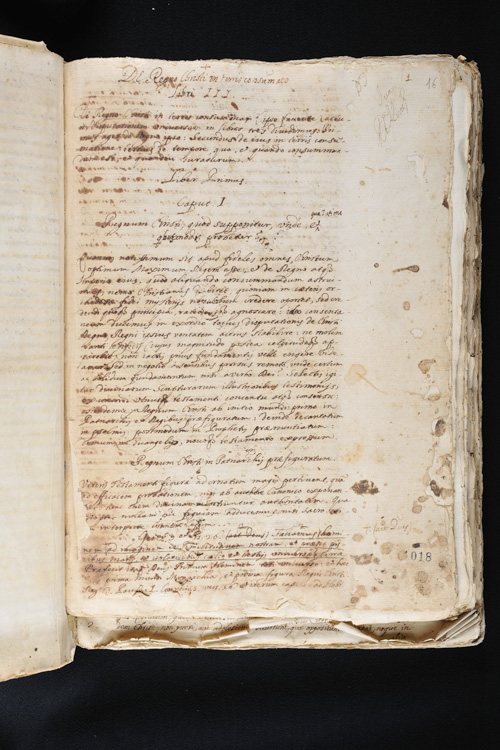FLUL researchers identify original manuscript by Father António Vieira S.J.

Ana Travassos Valdez, principal researcher at the History Center of the University of Lisbon, and Arnaldo do Espírito Santo, Professor Emeritus of the Faculty of Letters of the University of Lisbon (FLUL), presented on May 30, in a public session, the extraordinary discovery they made in identifying an original manuscript of Clavis Prophetarum (Key of the Prophets) by Father António Vieira S.J..
The 17th-century manuscript was believed to have been lost until 2020, when Ana Travassos Valdez identified it in the Historical Archives of the Pontifical Gregorian University (PUG) in Rome. With the help of Arnaldo do Espírito Santo, she validated its authenticity through a note in the margin of the text. The team that collaborated in the discovery, research, and subsequent restoration of the manuscript also includes Father Martín Morales S.J., Professor at PUG and director of the Historical Archives, Irene Pedretti, restorer and archivist, and conservators Giulia Venezia and Maria Stella Maggio.
Although incomplete, this work served as a basis for later texts by the Jesuit priest and, as its name suggests, is the key to interpreting biblical prophets and prophecies. It is currently being transcribed and translated with a view to subsequent publication, which will make the document accessible to other researchers.
The presentation session took place at the Faculty of Letters of the University of Lisbon and at the Pontifical Gregorian University, and the recording, with subtitles, is available on YouTube for viewing. The session was opened by the Director of FLUL, Miguel Tamen, and the Portuguese members of the team, Ana Travassos Valdez and Arnaldo do Espírito Santo, described the process of discovery and the importance of the document. They also provided an overview of what was known about it so far, through indirect sources. The team members in Italy also made contributions from Rome.
Helena Pereira, Chair of the FCT Governing Board, also spoke at the session, highlighting the importance of interdisciplinarity in scientific research, of joint work by "multiple actors, in different centers of knowledge and research and different geographical locations, constituting a global web of knowledge," and the integration of the different structures of the scientific system, which are fundamental elements for the realization of the research presented. Luís Ferreira, Rector of the University of Lisbon, closed the session, highlighting the work of the researchers involved and the role of institutions and their funding for the success of scientific work.
This discovery was supported by the Center for History at the University of Lisbon (CH-ULisboa) and the Center for Classical Studies at the University of Lisbon (CEC), both funded by FCT, and researcher Ana Travassos Valdez is funded by FCT through the Scientific Employment Stimulus program.
Photographs: Archive of the Pontifical Gregorian University (APUG) / All rights reserved